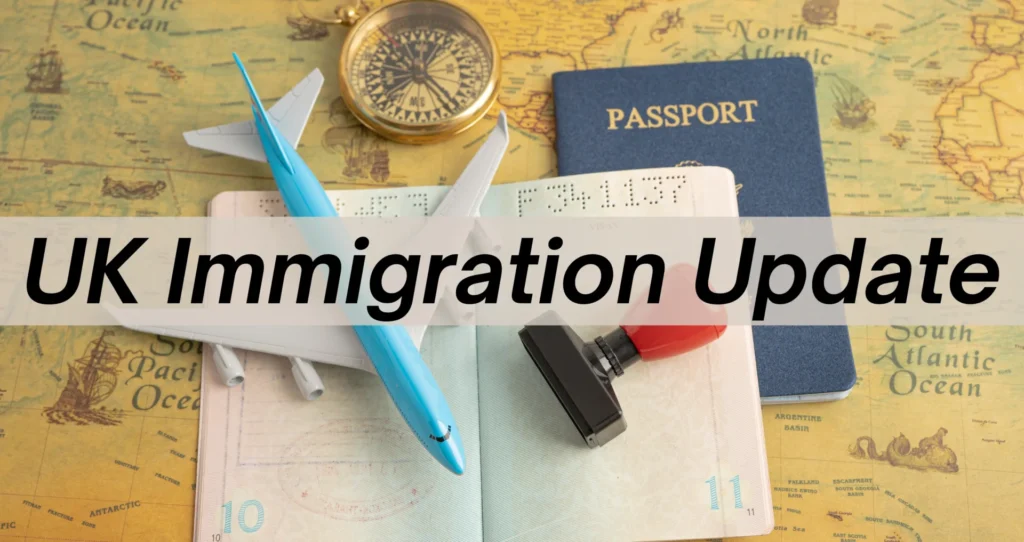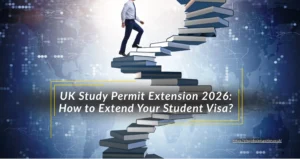The UK is in the process of refining its immigration system, and the UK Immigration White Paper 2025 introduces several changes that will have consequences for international students, education agents, and universities. Anyone planning to study or support students studying in the UK must understand these policy shifts, which include updates to the Graduate Route, stricter institutional compliance, and a proposed tuition levy. Let’s break everything down clearly.
Table of Contents
ToggleWhat Is the UK Immigration White Paper?
The UK Immigration White Paper, titled Restoring Control Over the Immigration System, was published on May 12, 2025. This strategic policy document outlines the UK government’s proposed immigration reforms, which aim to reduce net migration and tighten oversight across visa categories.
While most changes focus on the broader migration landscape, several important updates directly affect international students, universities, and education agents.
Graduate Route Visa Update: What’s Changing in 2025?
What is the current rule?
- Currently, international students can stay in the UK for:
- Two years after completing a bachelor’s or master’s degree
- Three years after completing a Ph.D
What’s Changing?
- The UK government has proposed reducing the duration of the Graduate Visa to 18 months for undergraduate and master’s students. If approved, this change will apply to students starting courses in January 2026 and beyond.
- PhD graduates will still be eligible for a three-year visa, pending confirmation.
- Students starting their courses in autumn 2025 are expected to retain the current 24-month post-study work (PSW) eligibility.
The Graduate Route (Post-Study Work Visa) is a major attraction for international students, offering them the opportunity to remain in the country and work after completing their studies. A shorter duration could impact future applicants’ decision-making.
Stricter Basic Compliance Assessment (BCA) for Universities
The UK government is strengthening the Basic Compliance Assessment (BCA) to ensure that institutions are sponsoring genuine students.
The new BCA criteria, effective in 2025, are as follows:
- Enrollment rate: Must be 95% (up from 90%).
- Course completion rate: at least 90% (up from 85%)
- Visa refusal rate: Must be below 5% (down from 10%).
The Home Office will introduce a public rating system (red, amber, green) to show how well universities meet these metrics. This system will help ensure transparency and trust in student recruitment.
Universities will be more selective and vigilant when issuing CAS (Confirmation of Acceptance for Studies). Agents and students should expect stricter screening.
Agent Quality Framework (AQF) Now Mandatory
Another significant change is the mandatory implementation of the Agent Quality Framework (AQF) for universities that use international recruitment agents.
What agents should do:
- Keep up-to-date records of all counselors.
- Ensure that counselors have received British Council training.
- Disclose lists of sub-agents to partner institutions.
- Be prepared to answer more compliance questions from universities.
These steps ensure transparency, ethical recruitment, and better student support.
Tuition Levy on International Students (Proposed)
The government is considering a 6% tuition levy on universities’ income from international student fees. This proposal has not yet become law and requires further consultation and approval by Parliament.
- If implemented, the cost could be passed on to students in the form of increased tuition fees.
- Revenue from this levy would be reinvested in the UK’s higher education and skills sectors.
- This change requires new legislation and is subject to further consultation and timeline announcements, likely in autumn 2025.
Potential cost increase for students and budgeting challenges for future cohorts.
English Language Requirement for Dependents
Starting soon, adult dependents (e.g., spouses) of students or workers will be required to demonstrate English proficiency at the A1 level (basic user).
This change:
- Does not affect the main applicant (student).
- Does not affect the university’s ability to self-assess English proficiency for admission purposes.
The impact is minimal for the students themselves, but important for those planning to bring family members.
The UK Still Welcomes International Students
Despite the proposed restrictions, the UK government and its universities continue to support global student mobility.
Graduate visas still exist, with minor adjustments.
NHS healthcare access through IHS remains unchanged.
Universities are enhancing agent support and transparency.
With over 732,000+ international students currently enrolled in the UK, the nation remains one of the most popular education destinations worldwide.
The Secretary of State for Education has clearly stated:
“International students are very welcome in the UK.”
What Should Students and Agents Do Now?
Are you a student planning to study in the UK after 2025, or an agent assisting them? Here’s how to prepare:
Students:
- Apply for the autumn 2025 intake to take advantage of the 24-month post-study work (PSW) rule.
- Work with trained, verified agents.
- Get informed about NHS healthcare and the IHS fee (there are no changes here).
Agents:
- Ensure full AQF compliance.
- Maintain accurate sub-agent lists and counselor credentials.
- Partner only with UK-approved institutions that meet BCA standards.
The UK Immigration White Paper of 2025 introduces key updates that will influence the future of international education in the UK. Although some rules appear stricter, the core message is clear.
The UK values and welcomes international students, and is committed to maintaining a high-quality, ethical, and globally competitive education system.
Need Expert Help with UK Student Visas?
STS Global Education is here to help:
- Student visa assistance
- IHS & NHS registration
- Course selection & university application
- Agent training & AQF compliance
Contact us today to ensure a smooth journey to studying in the UK!




